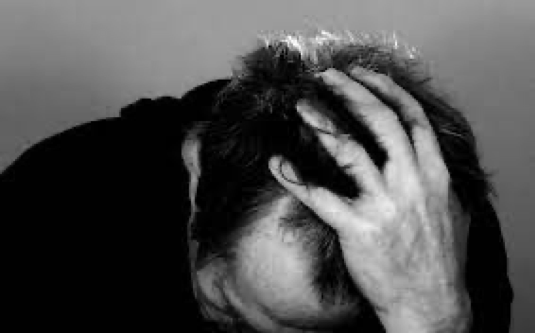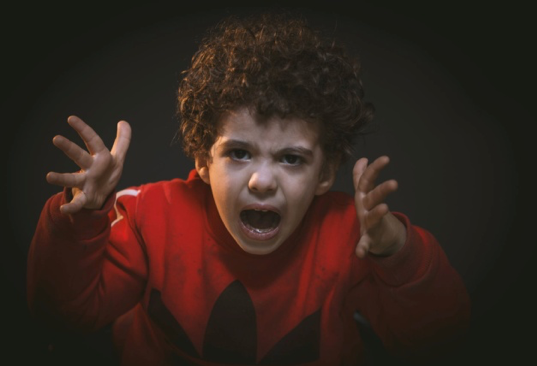 Stephen Geller Katz LCSW-R
Stephen Geller Katz LCSW-R
Misophonia Cognitive Retraining Therapy
 Stephen Geller Katz LCSW-R
Stephen Geller Katz LCSW-RMisophonia Cognitive Retraining Therapy
Misophonia Cognitive Retraining Therapy, as featured on the MTV True Life episode: “I Have Misophonia” premiering Friday, December 16th, 7:00 PM EST. See Clip >
|
|
|
| Moderate to severe anxiety triggered by chewing sounds, including: | ||
|
|
|
You may also be affected by visual stimuli, such as repetitive foot or body movements, fidgeting or movement you observe out of the corners of their eyes. Intense anxiety, rage and avoidant behavior may develop as a result of misophonia.
 * Do you feel your family and friends don’t understand how much you suffer?
* Do you feel your family and friends don’t understand how much you suffer?
* Do you often feel you can just suffer through a social event where there is eating present only to find that you must “escape” before you have a panic attack?
* Do you find that some people are at first understanding and make some efforts not to make the triggering sounds in front of you, but soon forget and constantly have to be reminded, causing you to feel angry, anxious and depressed?
* Are you avoiding social activities that you enjoy because of the misophonia?
* Are you fearful of losing your job and/or is the misophonia effecting your job performance?
You may be a candidate for Misophonia Cognitive Retraining Therapy, or MCRT.
Stephen Geller Katz, LCSW-R, with over 20 years of clinical experience, a New York University graduate, developed Misophonia Cognitive Retraining Therapy and founded Misophonia Cognitive Center™ in response to the growing number of people with Misophonia coming to his private practice from audiologists and ENTs. He discovered that by helping people to retrain and reinterpret the thoughts around their Misophonia, anxiety and depression symptoms began to improve. But even more important so did the Misophonic trigger response.
What causes the condition known as misophonia? Many serious mental health issues can affect an individual, which can have very complicated causes. A prime example worth looking at is depression, which happens to be one of the most well documented and studied mental health conditions people can face.
However, despite a better understanding of the condition, they still struggle to determine the definitive cause of depression. Similarly, with conditions like misophonia, there is no real way of determining its’ cause.
As one of the newer mental illnesses that people hear about, the condition can be very concerning for anyone who is hearing about it for the first time. Some people may even have the condition but just thought it was normal for them to be so angry when hearing certain sounds. You may have even heard a few of your friends reacting this way without taking it too seriously. Here we will look deeper into why people react the way they do when they hear specific sounds.
Fortunately, Misophonia is a manageable condition if people show milder symptoms of the condition. According to varying reports, nearly 20% of people have some form of misophonia, with only a very small percentage of people having it so bad that it makes it difficult for them to function in society.
However, with such a larger population of people having some form of this condition, many have concluded that the condition only amplifies how humans feel about certain sounds. Through various studies, they found that people who do not have the condition can find certain sounds so terrifying that they can become visibly uncomfortable.
When researchers brought in people with misophonia, they reacted similarly to people who did not have the condition. Therefore, the real difference comes from most people’s extreme reactions to more mundane sounds. In these situations, many believe that trauma could be the underlying factor.
As we mentioned earlier, there is no specific cause for misophonia, and various factors could influence it. Trauma is a major influencing factor for misophonia, as people can react differently to certain sounds that remind them of traumatic experiences. For example, consider a person who has survived a car accident. They might find the screeching sound of tires on the road very disturbing and threatening.
Some patients have found the voice of chewing triggering because an abuser would chew that way. However, while these are more generic, some can be very specific. Some individuals with the condition will often find the voices of their loved ones triggering or the pen clicking of a loved one very problematic.
Understanding the more personal element that goes into misophonia makes it obvious that trauma certainly plays some role in determining the triggering sounds they find.
Misophonia has many symptoms similar to other mental disorders, especially OCD. Some believe that people with symptoms of OCD can eventually develop misophonia symptoms. And similarly to OCD, the main treatment options for misophonia address the symptoms of the condition rather than its underlying condition.
People with more severe misophonia cases will have to learn about the condition and cope with its many difficulties.
Various factors can often contribute to the causes of misophonia, but they are more complex to discern.
If you’re struggling with misophonia and have extreme reactions to small trigger sounds or actions, then misophonia treatment might be what you need. Over the past 20 years, Stephen Katz LCSW has developed a highly effective treatment of misophonia using cognitive behavioral therapy (CBT).
So call today to schedule an easy online consultation. Get the help you deserve now!
Stephen Geller Katz LCSW-R
646-585-2251
Tele-Video Sessions
Speaks 5 languages
International Patients Welcome
What are the possible causes of misophonia? Misophonia is irritation and annoyance from repeated noises such as sniffing, tapping, and chewing. In simple words, it is a condition where patients have negative reactions after hearing certain triggering sounds. Many people know this condition as selective sound sensitivity syndrome.

(Source)
People living with misophonia cannot control their emotions when they hear certain sounds. Other people might not find these sounds irritating and bothersome. However, most patients with misophonia lose control after hearing the sounds.
As matter of fact, the word misophonia is a Greek word that means “hatred of sound”. That is why experts refer to this condition as misophonia because the patient can’t tolerate certain sounds. In extreme cases, people with misophonia get aggressive while trying to stop the triggering sound. Here are some extreme responses:
Some triggers are more distressing for people than others. For instance, the sound of chewing can be more triggering for some people than the tapping sound. That is why people with misophonia prefer eating alone. Also, they avoid going to cafes and restaurants to prevent an aggressive response.
Since there is little research about misophonia, we can just presume the causes of the condition. Here are some common causes of misophonia:
According to some experts, misophonia links with attention deficit hyperactivity disorder ADHD. They also found that misophonia is a separate disorder as well as acts as a symptom of other conditions.
People with misophonia also experience increased heartbeat and excessive sweating when they hear the triggering sound. But, they develop similar symptoms in stressful situations. In this regard, experts suggest that mental conditions such as phobias and anxiety can lead to misophonia.
Besides, misophonia has unique characteristics as well. These characteristics are:
If you don’t have misophonia, various causes might lead to it. The major cause for developing misophonia is stress.
What to understand what misophonia is about? It is a condition that makes you angry or annoyed whenever you hear a certain sound. For instance, many people find chalk scraping on the blackboard irritating. If you find it irritating that doesn’t mean you have misophonia. Many people find the sound of chalk irritating. But, the way you react is how a person with misophonia reacts to triggering sounds. As soon as they hear the triggering sound, their first response is to stop the sound source.

(Source)
Since other people don’t find this sound irritating, the patient might struggle to express the level of annoyance. As a result, they lash out in anger. Other people consider it an extreme reaction, which makes it tough for the patient to open up. They stay in isolation and distress to avoid the triggering sound.
If you are unable to tolerate triggering sounds you should visit a misophonia treatment specialist. A professional with extensive experience can help you. At the Misophonia Cognitive Center ™, you can consult with Stephen Geller Katz and discuss your problems. For more information, give us a call at 646-585-2251.
Do certain sounds make you angry? A person suffering from misophonia gets angry whenever they hear common, everyday sounds, such as someone eating or breathing. The sound of such activities triggers your fight-or-flight reaction. As a result, you avoid restaurants, parks, and other public places. The reason? You feel that you can’t control your emotions in these spaces. People suffering from misophonia have shared that when they hear continuous sounds such as tapping or chewing, they felt like they were going to die. In fact, normal people may not even notice the sound, but because of the condition, your ears may become sensitive to such sounds.

(Source)
According to various researches, misophonia is an autonomic and unconscious response of your nervous system. Professionals concluded this after analyzing people’s reactions to sounds. These people are sensitive to sound. Studies also suggest that alcohol and caffeine can make the condition worse (Source).
Misophonia is a disorder that emotionally affects you because of the triggering sounds. These sounds may be unnoticeable and common for others, but they give you a hard time when you’re trying to listen and tolerate. The sound that triggers your emotions and increases the desire to escape includes yawning, breathing, or chewing.
This condition does not include a lot of research, and doctors cannot yet tell how common this condition is. The severity of the symptoms varies from one person to another. People with misophonia are not expressive. They prefer to stay in isolation rather than mentioning things to others or doctors. Because they feel embarrassed about developing this condition, they hide it. That is why many doctors and other health care providers do not know about the condition.
Keep in mind that misophonia is a serious condition that limits your quality of life, social life, functionality, and mental health. Most people develop this condition at the age of 12, and the severity of the condition increases over time.
With little research, professionals are unable to find the actual cause of the condition. However, some factors affect the development of this condition. Here are a few of those factors:
People suffering from Tinnitus often develop Misophonia. In Tinnitus, they continuously hear ringing or clicking sounds in the ear. This leads to intolerance of similar sounds from external sources. Tinnitus is a genetically transferred condition that affects your tendency to hear sounds. There are numerous underlying conditions for the development of Tinnitus, including trauma, injury, or an infection.

(Source)
According to some experts, Misophonia relates to the anterior insular cortex or AIC. This region of the brain is responsible for processing emotions. Also, when your auditory cortex does not normally function and increase communication with the auditory organs, some sounds become more prominent than others. Consequently, irritating sounds seem louder and more apparent.
Misophonia is a genetic condition that can run in the family. The genetic component of this condition increases the chances for you to develop the condition.
Many other conditions, including Tourette syndrome, obsessive-compulsive disorder, and anxiety disorders, can cause misophonia. The hypersensitivity in this condition will cause a fight and flight response.
The condition can trigger feelings of stress. Because of this, you may prefer to stay in isolation to avoid irritating sounds. While many people find chewing sounds annoying, people with misophonia feel fury and rage when someone makes such a sound near them.
Normal sounds, such as the clicking of a pen, can irritate you if you deal with misophonia. When you experience the problem, you may want to scream and run from the situation or try to make the noise stop with rage. This condition can cause daily irritation leading to anxiety and depression. You will find it hard to live your life to the fullest.
Suffering from misophonia means you can react to relatively small sounds & behaviors. Your reaction starts with irritation because of the sound, and it instantly turns into anger and rage. You will feel like shouting and become verbally and physically aggressive. Here are some physical reactions that you might experience caused by misophonia. The reactions include:
According to Dutch researchers, here are some common triggers of misophonia:
As you can see from the above percentages, eating sounds many people with misophonia finds eating sounds irritating.
People suffering from misophonia will start experiencing the symptoms of the condition at an early age. It starts with one sound, and over time, you feel irritation with other sounds as well. The reaction to the sound can be intense or excessive.
This affects your feelings, and you can lose control. Misophonia is a chronic condition usually triggered by other conditions. Misophonia can lead to mental illness and isolation, leading to depression and stress. If you want to visit a professional and control your symptoms, simply contact our clinic at 646-585-2251.
What are the causes of misophonia & sound disorders? Misophonia, or the “hatred of sound” in Greek, is also known as selective sound sensitivity syndrome. In this condition, certain sounds and noises trigger various mild to intense reactions in misophonic people. Their general reactions to certain sounds and noises include anxiety, depression, evasive tactics, anger, irritation, and, sometimes, outburst aggression and physical lash-outs.

(Source)
Despite a wide range of Misophonia trigger sounds and the respective behavior or reactions, every misophonic person might not react the same way to the same sounds or noises. In fact, while one may be calm or slightly annoyed, the other may show violent behavior or engage in verbal abuse upon encountering Misophonia triggers.
While Misophonia is prevalent in men and women of all ages, there is a lack of research and studies. The term “Misophonia” came into use during studies in the year 2000. It was called selective sound sensitivity syndrome in later years, and due to the spread of awareness, experts are now focusing on different aspects of Misophonia and possible treatment options.
However, Misophonia is not recognized and listed as a mental health condition and sound disorder in the DSM-5.
Misophonia has similar signs and symptoms as other mental health conditions, such as anxiety, bipolar, and obsessive-compulsive disorders. Moreover, it also includes outburst reactions and aggression that severely autistic people show.
Nevertheless, there is no “definite” connection between these conditions and Misophonia (some doctors believe that it is possible). In addition, researchers also believe that Misophonia can occur at an early age without any association with these mental health conditions.
Here are some factors that scientists, researchers, and doctors believe can be potential causes of Misophonia:
Many doctors agree that Misophonia can accompany certain mental health conditions like Tourette syndrome, anxiety, depression, bipolar disorder, and/or OCD in people.
Moreover, if a person is not yet misophonic and has a close blood-related family member with Misophonia, then there is a higher risk of developing the same condition over time.
Few researchers suggest that emotional processing, i.e., the interconnectivity and the working of certain brain components in some people, might give rise to Misophonia and related symptoms.
Tinnitus is a condition that requires special medical care. In this condition, a person hears an unreal ringing sound that no one else is usually able to notice or perceive.
While the awareness has increased, there is still a lack of adequate research and studies to forefront definitive answers to Misophonia. The scale of studies and reports remains small, and thus further biological and empirical evidence is still lacking to confirm certain aspects of the condition.
A recent study shows the key role that the brain plays in a misophonic person’s condition. It suggests that the brain is responsible for assimilating the external outputs with the internal organs and their output. Hence, the production of stimuli that causes the emotion processing of the brain to cause Misophonia in some people.
Misophonia can adversely affect the life of an individual, such as personal and social life. The outburst reactions and the uncontrollable anger can result in disastrous situations, especially where there are a lot of people around.
Subsequently, after reacting, a misophonic person feels guilt and shame, which leads them to avoid social gatherings, events, occasions, and friend circles. They assume that it is better to stay away from intolerable random noises than showing anxious and stressful behavior.

(Source)
On the other hand, some misophonic people find it difficult to sleep as some Misophonia triggers might exist in their house, such as ticking clocks or tapping window panels.
As the Diagnostic and Statistical Manual of Mental Disorder (DSM-5) does not recognize Misophonia for official diagnoses, there are limited treatment methods. However, in 2013, proposed diagnostic principles and researches supported the idea of handling Misophonia as a discreet and separate psychiatric disorder.
The same proposed diagnostic principles outline certain main characteristics of Misophonia in people, as follows:
Regardless of the lack of any official diagnosis, your general doctor might be able to suggest treatment methods or practices for you to cope with this mental health condition.
Do you feel irritation and anger upon hearing certain sounds? Don’t waste time, and get the medical care that you deserve. Contact Dr. Stephen Geller Katz LCSW-R today.
At the Misophonia Cognitive Center™, Dr. Katz utilizes the best systems to dramatically improve or cure serious sound disorders. Dr. Katz is a world renowned specialist who has helped MANY patients overcome the symptoms of Misophonia and related mental health conditions.
Call 646-585-2251 to book an appointment today. Visit the official Misophonia website for more info.
References & related links:
https://www.medicinenet.com/misophonia/article.htm
https://misophoniainstitute.org/what-is-misophonia/
https://www.healthgrades.com/right-care/mental-health-and-behavior/misophonia
https://www.webmd.com/mental-health/what-is-misophonia#2-6
https://www.asha.org/practice-portal/clinical-topics/articulation-and-phonology/#collapse_2https://www.ncbi.nlm.nih.gov/pmc/articles/PMC6034066/#:~:text=Misophonia%20is%20a%20form%20of,or%20stress%20the%20unconditioned%20stimulus.
https://www.verywellmind.com/misophonia-hatred-of-sound-1191958